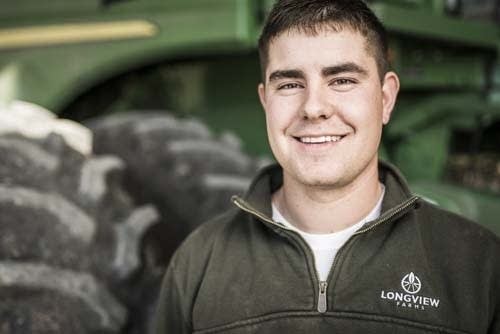Farmer Incentives, Mayonnaise and More!

Farmer Incentives, Mayonnaise and More!
These days, food companies are seeing a lot more demand from consumers for sustainably-grown food. But will that demand translate into actual incentives for farmers to use conservation?
Those questions were at the heart of the latest episode of the Field Work podcast, as well as the Sustainable Agriculture Summit conversation the episode is based on. The conversation included Scott Henry, a row crop farmer from Iowa, and thought leaders from Unilever, parent of many major food brands.
Henry participated in Unilever’s sustainable soy program, which paid a premium for using conservation practices. Fortunately for Henry, he had already started using some of the practices that the program rewarded.
“We were actually receiving a benefit for doing what we already believed to be the right thing,” he said.
The premium was small. But “to see the consumer and the supply chain recognizing that there is value to what we were doing on the field and with their product was valuable,” he said.
But Henry was concerned that the incentives out there are too small for farmers who aren’t sold on the value of sustainable agriculture.
“The cold reality of it is the economic benefits aren't flowing back to the farmer,” he said.
One major issue, Henry pointed out, is that many farmers don’t own the land that they operate. Conservation ag can build soil health and return benefits in the long term. But growers on an annual lease might not think that a long-term investment in the land is worth their energy.
“If you as a farmer cannot experience an economic benefit in the first year of that program and it's not land that you own, how committed are you going to be to experience the longer term benefit?” he asked.
Hellmann’s, and its parent company Unilever, are hoping to make that investment in conservation more attractive with their sustainable soy program.
Ben Crook, Senior Director for Condiments and Brand Manager of Hellmann’s, said that their goal is to connect the increasing consumer demand for transparency with the demands farmers face growing food sustainably.
“We want the soil health practices adopted,” added Stefani Millie Grant, Unilever Senior Manager of External Affairs and Sustainability.
For Hellmann’s and Unilever, Grant pointed out, sustainability means promoting environmental farming practices while at the same time, keeping farms economically sustainable. That’s why they’re offering farmers in their soy supply chain cost share for planting cover crops.
But Grant recognizes that for conservation ag to be adopted on a large scale, the system needs to stop encouraging farmers to measure their success by how much they planted fence row to fence row.
“Right now you're incentivized on yields. You're not incentivized on anything else. And you're not going to get adoption until we change that,” she said.
The Sustainable Agriculture Summit is an annual gathering for major food companies, government agencies, academics, conservation groups, and farmers committed to advancing a coordinated and comprehensive approach to driving change in agriculture sustainability. The Host Partners are Field to Market and Innovation Center for U.S. Dairy. The next summit will be held in Phoenix, AZ in November 2020. Special thanks to the host partners for inviting Field Work to record at the 2019 summit.